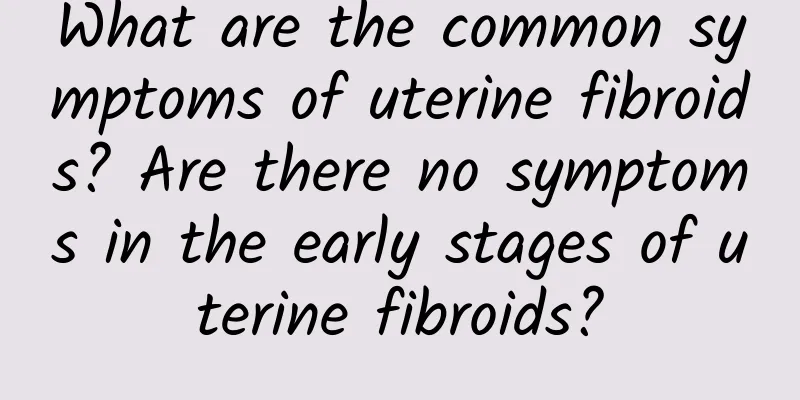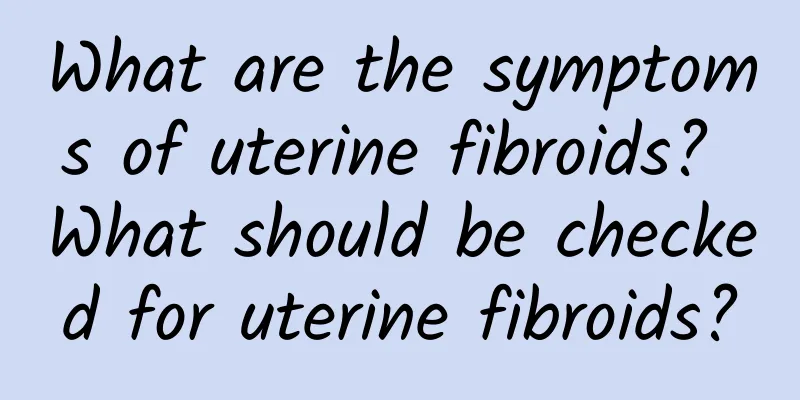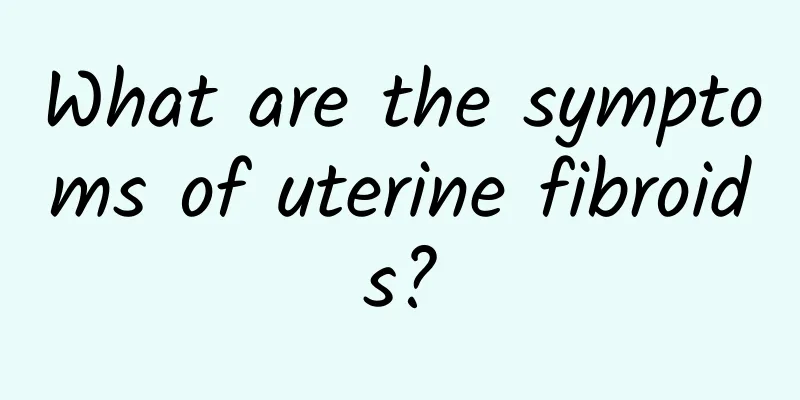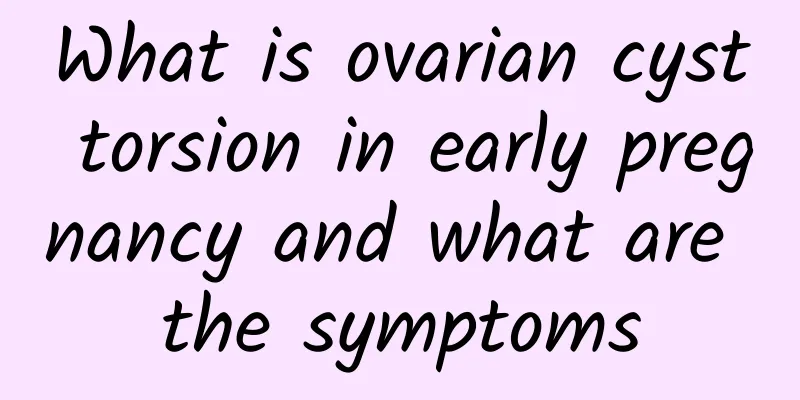What are the common symptoms of uterine fibroids? Are there no symptoms in the early stages of uterine fibroids?

|
Many people are asking about the symptoms of uterine fibroids. Only by correctly grasping the symptoms of uterine fibroids and symptomatic treatment can the best treatment effect be achieved. What are the symptoms of uterine fibroids? Next, let's master it in detail. Uterine fibroids are a common gynecological disease, mostly benign tumors, but there is also a certain possibility of cancer. Therefore, once uterine fibroids are found, it is important to pay attention to scientific treatment under the guidance of a doctor to determine whether uterine fibroids are benign tumors and whether they will develop into cancer. Because the endometrium near the uterine fibroids is rich in blood vessels, menstruation is heavy and prolonged. As fibroids grow, symptoms develop. For example, fibroids compress the bladder, causing frequent and urgent urination. Fibroids compress the urethra, causing urine retention or difficulty urinating. Fibroids compress the rectum, causing difficulty defecating. Uterine fibroids compress the ureters, causing urethral obstruction and hydronephrosis of the renal pelvis and upper ureter. In addition, subserosal (outside the uterus) pedunculated fibroids may cause acute abdominal cramping due to torsion. Lower abdominal pain can occur when submucosal (intrauterine) fibroids pass through the cervical canal into the vagina, and intramural fibroids can cause or worsen dysmenorrhea. Uterine fibroids occupy the uterus as foreign bodies, often hindering the implantation of fertilized eggs, preventing sperm movement, affecting the normal development of the embryo, and easily leading to infertility or miscarriage after pregnancy. The above is an analysis of the symptoms of uterine fibroids. It is understood that uterine fibroids have no obvious symptoms in the early stage. Only when the tumor grows to a certain extent will the symptoms be exposed. Of course, after mastering the symptoms of uterine fibroids, we must actively go to a professional hospital to treat this disease. |
<<: What are the symptoms of uterine fibroids? What are the causes of uterine fibroids?
>>: What are the symptoms of uterine fibroids? How to choose surgery for uterine fibroids
Recommend
If you have these 5 symptoms, you may be suffering from hyperprolactinemia.
When it comes to hyperprolactinemia, many people ...
Breast cancer shakes off depression! Eat more spinach, bananas, cherries, 9 kinds of happy foods, and do aerobic exercise
Don’t worry about breast cancer! It is not only t...
Experts introduce the dangers of uterine fibroids
What are the dangers of uterine fibroids? Experts...
Expert introduction: Is cervical hypertrophy generally easy to treat?
We know that the treatment of cervical hypertroph...
Say goodbye to belly fat~ Clothesline exercise to strengthen waist and abdomen
Feel like you'll never lose weight? You keep ...
What causes vulvar itching during menopause? Early detection and early treatment are necessary
Vulvar itching is a common phenomenon of female g...
Can congenital absence of vagina be completely cured?
Can congenital absence of vagina be completely cu...
Pure fat bag breast augmentation to get rid of the title of Princess Taiping
Even though you have a pretty face and a decent f...
What causes bacterial vaginosis
Bacterial vaginosis is one of the most common gyn...
What is the cause of cervical erosion in women?
Cervical erosion is a common cervical disease in ...
Experts remind: Uterine fibroids are very harmful to women
For patients with uterine fibroids, they should f...
What are the clinical symptoms of uterine fibroids?
What are the clinical symptoms of uterine fibroid...
May I ask the experts why cervical erosion is prone to recurrence?
"Why is cervical erosion prone to recurrence...
Love to use domestic products! The government is keeping a close watch on agricultural products, so you can enjoy them with peace of mind
In order to promote Taiwan's high-quality agr...
Council of Agriculture: Will implement the "cow-pig separation" policy
The Council of Agriculture, Executive Yuan, Burea...









